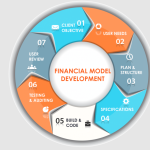In the modern world of achievements and results, for a long time, the bet was placed on rational intelligence. At the same time, the emotional intelligence of a person was ignored. In today’s definition, emotional intelligence is the ability to identify, use, understand, and positively manage emotions. It allows us to reduce stress, communicate effectively, empathize with others, respond to life’s challenges, and resolve conflicts.
It is crucial to develop students’ emotional intelligence and empathy while studying at the university. It is because they are sensitive and ready to percept helpful information. One of the key instruments for teaching empathy to students in literature. It can provide a specific emotional frame. It facilitates greater knowledge of it and simulates our social interactions.
How to find time to read the best fiction examples?
While getting an education, students have to read a lot to gain career knowledge and boost their personal development. Appropriate literature can have an impact on students’ emotional sphere development. Yet, it is not a secret that young people are busy and under pressure. Yet all books have to be read on time. In this case, they usually need help from their tutors or peers. Some students look for help online. There are various platforms where they can read summaries of many books. For instance, love medicine summaries will show students a diverse world. It is at once violent and tender, ugly and lyrical, realistic and gothic. It provides emotional experiences that mold the brain circuits for empathy. They aid the student in developing an understanding of human behavior.
What are the benefits of reading fiction?
There are many solid reasons to incorporate literature into studies. Not the least is its capacity to foster compassionate communication and emotional intelligence. Scholars prove that reading helps foster emotional intelligence. It allows readers to experience emotions through the eyes of others. This may help develop empathy-related brain circuits. With repeated vicarious experiences offered by books, a student who lacks firsthand experiences with empathy may build some readiness for it. A young person can learn about human behavior. They understand that there is always hope. And that one can overcome even insurmountable problems by reading good literature.

How to implement a book into the course
There are some activities teachers can use to nurture emotional intelligence:
1. Group discussions.
Group discussion of literature masterpieces teaches students to empathize with characters. Also, conflict situations familiar to young students are often in books. And the methods of solving these situations by novel characters and the consequences are demonstrated. They talk about a moral choice that encourages thinking about human behavior. Uncontrolled emotions can have disastrous consequences for the characters and, ultimately, how to fix the situation. But, professors should remember that not all books can be used when working with students.
2. Scripting.
The ideal stories for this activity are about interesting characters. They may go through difficulties or disappointments without much help from the other characters. The character may have said or done something to the others to make them feel better. Or the character could have said something to the others to let them know how he or she was feeling. Someone reading a book can add a script that demonstrates these possibilities.
3. Identifying feelings in text
This is a fantastic practice. It forces students to return to the text to discover evidence for their interpretations. And they try to figure out how the author reveals the characters’ feelings. Students know that while writing stories, authors often use precise language to convey the characters’ emotions. But sometimes, it takes careful reading of the text to discern the characters’ emotions. How are they conveyed through speech, actions, or silence? This is not always easy, but with practice, students will gain insight that will be helpful in real life.
Conclusion
Research is pointing to the significance of emotional intelligence abilities for success in a variety of spheres of life. It is a complete concept. It includes not only self-awareness but also an understanding of the interlocutor’s emotions and feelings. The ability to quickly and skillfully read the mood of others helps people solve various life situations. They establish socially important contacts.
Also, literature can provide many instances of emotional life. It can enhance students’ lives and both our inner and outward worlds. It can induce certain emotional states that enable a deeper comprehension of things. Effective literature-based teaching methods help students build their emotional and personal intelligence.















